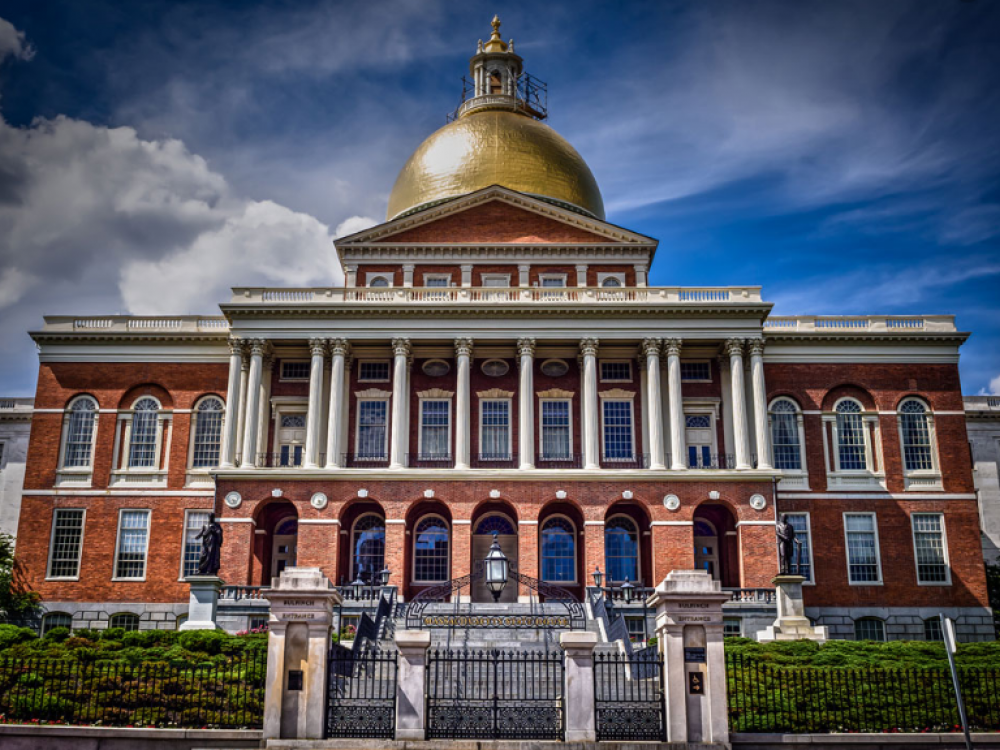Massachusetts Fall Legislative Preview

With less than a year to go until the end of formal sessions on July 31, 2020, Massachusetts legislators are back in action this month to begin tackling a robust policy agenda. We are poised to see action on both new and pending legislation this fall on a number of priority policy areas. Here’s what to watch for this fall:
- Health Care: It is widely anticipated that the Legislature and the Baker Administration will seek to curb health care costs in the MassHealth program, fund community hospitals, and address pharmaceutical drug pricing and transparency, amongst other items, through separate omnibus pieces of legislation. The House is poised to release their version of a bill this fall, around the same time Governor Baker’s bill is also set for release. The House will act first, passing their version of the legislation for the Senate to consider. The Senate will then release their own version, most likely triggering the appointment of a Conference Committee, whose job is to reach final consensus on bill. Both branches have committed to passing legislation this session after a similar attempt was made last year, but failed to cross the finish line before the end of the session.
- Transportation: Governor Baker has filed (H4002), An Act authorizing and accelerating transportation investment, which authorizes an $18 billion investment for transportation-related capital projects through bond funding. We are likely to see movement on this legislation as the state grapples with extreme traffic woes, in addition to mechanical issues on the well-traveled MBTA and Commuter Rail systems. Additionally, the House and Senate remain in negotiations on a bill relative to distracted driving, and both branches are likely to seek reforms, through legislation, at the Registry of Motor Vehicles after shoddy record keeping practices were revealed this summer.
- Climate Change: In July, the House of Representatives passed legislation, commonly referred to as the “GreenWorks” bill, which is now before the Senate for their consideration. The GreenWorks bill (H3987) allows cities and towns across the Commonwealth to apply for funds, in total $1 billion over ten years, for climate change resiliency programs. Governor Baker filed similar legislation (S10) increasing the real estate transfer tax to fund the Global Warming Solutions trust fund for resiliency and mitigation projects across the state. We are likely to see some compromise version of this legislation before the end of formal sessions in July of 2020.
- Education Funding: Governor Baker filed legislation in January which revamped the funding formula for public schools in the state. Both branches of the Legislature followed with their own versions of the bill which also rework the funding formula, though each proposes a different total spend and mechanism to allocate the funds. The Joint Committee on Education is laser focused on crafting a compromise bill that can pass in both branches and be approved by the Governor, particularly since a compromise on the funding formula fell short last legislative session.
- Sports Betting: Chairs of the Joint Committee on Economic Development and Emerging Technologies have held several public hearings and panel discussions regarding the proposal of legalizing sports gambling in the Commonwealth. From these hearings it is clear that the Committee is focused on several hot topic areas including the number of online skins to be allowed per license, age verification on mobile and online platforms, athlete integrity, gambling addiction, and the role of the Massachusetts State Lottery. With other states beginning to authorize this form of gambling, Massachusetts legislators appear to be both pressured to pass legislation quickly and thereby increase gaming revenues for the state, and to craft legislation that is thoughtful and comprehensive. This will be a hot topic to follow throughout the remainder of the legislative session.
- FY2021 Budget Process: Although the ink is barely dry on the long awaited FY2020 budget, the Baker-Polito Administration is no doubt preparing to draft their version of the FY2021 budget, which will be due the third Wednesday in January. While revenue receipts continue to beat expectations, the Administration will need to take the next few months to closely monitor the situation before putting pen to paper to come up with its recommended spending plan. Lastly, it is important to note that the Administration, and more so the Legislature, use the budget bill as a vehicle to implement new policies and initiatives, so it will be crucial to closely monitor the development of the budget throughout the remainder of 2019 and into 2020.
ML Strategies will continue to monitor legislative action on the policy pieces noted above, in addition to legislation on other topics that could surface in the coming months.
Content Publishers

Caitlin Beresin
Daniel J. Connelly
Senior Vice President and Compliance Officer
Dan Connelly is a lawyer and lobbyist with over two decades of experience guiding clients through the legislative, regulatory, and political landscape. In addition, he counsels clients on lobbying registration and disclosure requirements, offering tailored guidance in complex compliance environments.
Steven A. Baddour
Executive Vice President & Director of Operations
Steve Baddour is a seasoned strategist and former Massachusetts State Senator and Assistant Attorney General with over three decades of experience in law, government, and public policy. His innovative approach to lobbying helps clients turn obstacles into opportunities by crafting tailored solutions that get results where others stall.
Taylor C. Shepherd
Vice President of Government Relations
Taylor Shepherd is a seasoned public policy professional with a proven track record of success in legislative and regulatory lobbying, strategy, and relationship building. With roots in the Massachusetts State House, she has developed a meticulous and strategic approach to navigating the complexities of the policymaking process.



